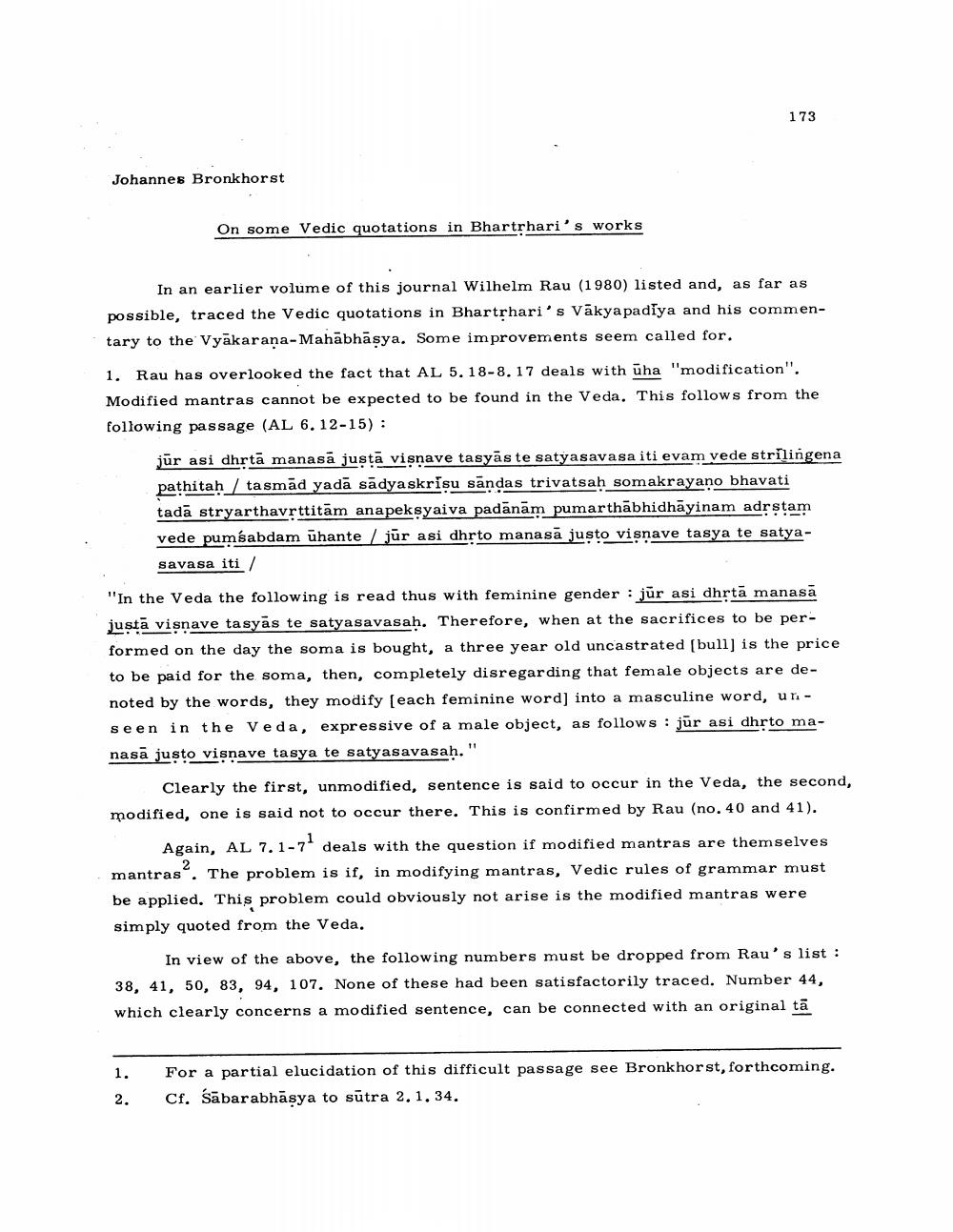Book Title: On Some Vedic Quotations In Bhrtrharis Works Author(s): Johannes Bronkhorst Publisher: Johannes Bronkhorst View full book textPage 1
________________ 173 Johannes Bronkhorst On some Vedic quotations in Bhartrhari's works In an earlier volume of this journal Wilhelm Rau (1980) listed and, as far as possible, traced the Vedic quotations in Bhartrhari's Vākya padiya and his commentary to the Vyakarana-Mahabhāsya. Some improvements seem called for. 1. Rau has overlooked the fact that AL 5.18-8.17 deals with ūha "modification". Modified mantras cannot be expected to be found in the Veda. This follows from the following passage (AL 6.12-15) : jūr asi dhrtā manasā justā visnave tasyās te satyasavasa iti evam vede strilingena pathitah / tasmad yadā sadya skrisu sandas trivatsah somakrayano bhavati tadā stryarthavrttitām anapeksyaiva padanām pumarthābhidhāyinam adrstam vede pumsabdam ūhante / jūr asi dhrto manasā justo visnave tasya te satyasavasa iti / "In the Veda the following is read thus with feminine gender : jūr asi dhrtā manasa justā visnave tasyās te satyasavasah. Therefore, when at the sacrifices to be performed on the day the soma is bought, a three year old uncastrated (bull] is the price to be paid for the soma, then, completely disregarding that female objects are denoted by the words, they modify (each feminine word) into a masculine word, unseen in the Veda, expressive of a male object, as follows: jūr asi dhrto manasā justo visnave tasya te satyasavasah." Clearly the first, unmodified, sentence is said to occur in the Veda, the second, modified, one is said not to occur there. This is confirmed by Rau (no. 40 and 41). Again, AL 7.1-7 deals with the question if modified mantras are themselves mantras'. The problem is if, in modifying mantras, Vedic rules of grammar must be applied. This problem could obviously not arise is the modified mantras were simply quoted from the Veda. In view of the above, the following numbers must be dropped from Rau's list : 38, 41, 50, 83, 94, 107. None of these had been satisfactorily traced. Number 44, which clearly concerns a modified sentence, can be connected with an original tā For a partial elucidation of this difficult passage see Bronkhorst, forthcoming. Cf. Šābarabhāşya to sūtra 2.1.34. 2.Page Navigation
1 2
